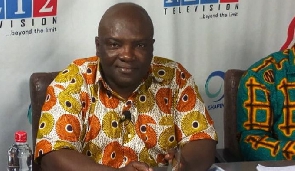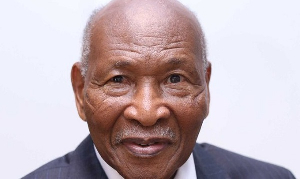Opinions of Tuesday, 30 January 2024
Columnist: Ken Braimah
Navigating uncharted waters: Unemployed first-time voters hold the key to Ghana's 2024 election
Ghana's political landscape is on the verge of a transformative shift as the nation braces itself for the 2024 election. With a staggering 2.6 million first-time voters aged 18, and a total of 9.6 million voters between the ages of 18 to 35 facing unemployment in the working class grappling with joblessness, the
electoral dynamics are poised for a paradigm shift. In this article, we delve into the critical role of strategic decisions at the voter registration center as political parties vie for the support of this influential demographic.
Ghana's youthful population, comprising approximately 9.4 million individuals between the ages of 18 and 35, forms a significant portion of the working class. However, a concerning trend persists with high levels of unemployment among this demographic. The challenges of securing employment have bred frustration and discontent, making the voices and votes of this group crucial in determining the outcome of the 2024 election.
The 2.6 million first-time voters represent a formidable force in the upcoming election. Their political decisions are driven by a desire for change, hope for a brighter future, and a commitment to shaping the destiny of their nation. In this context, the impact of this demographic is amplified by its sheer size,
signifying a potential shift in the political landscape.
Political parties seeking victory in the 2024 election must recognize that the battle begins long before the first vote is cast in December. The voter registration center becomes the strategic battleground where parties must engage and mobilize these first-time voters effectively. Outreach programs, educational campaigns, and leveraging digital platforms become essential tools to ensure that this demographic not only registers to vote but is also well-informed about the pressing issues at hand.
In a unique twist, the actual vote in Ghana's 2024 election is not the physical casting of ballots in December; rather, it is the registration process. The decisions made during voter registration lay the foundation for the subsequent casting and counting of votes. Recognizing this nuance, political parties
must focus on making impactful impressions during the registration phase, setting the stage for success in the actual election.
The true measure of success lies in the meticulous planning and execution of strategies during the voter registration phase. Winning the trust and support of the unemployed first-time voters and the larger working-class demographic is paramount. It is at the registration center that political parties lay the
groundwork for a victory that goes beyond the symbolic casting of votes, extending into the counting phase where each registered vote holds significance.
As Ghana approaches the 2024 election, the fate of the nation lies in the hands of its unemployed first- time voters and the substantial working-class demographic. Strategic decisions made by political parties at the voter registration center will be the determining factor in shaping the future trajectory of the country.
The December vote is not just a culmination, but a reflection of the success achieved during the crucial registration phase. Ghana stands at a pivotal juncture, and the choices made by political entities will resonate long after the ballots are cast and counted.













